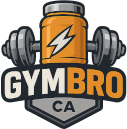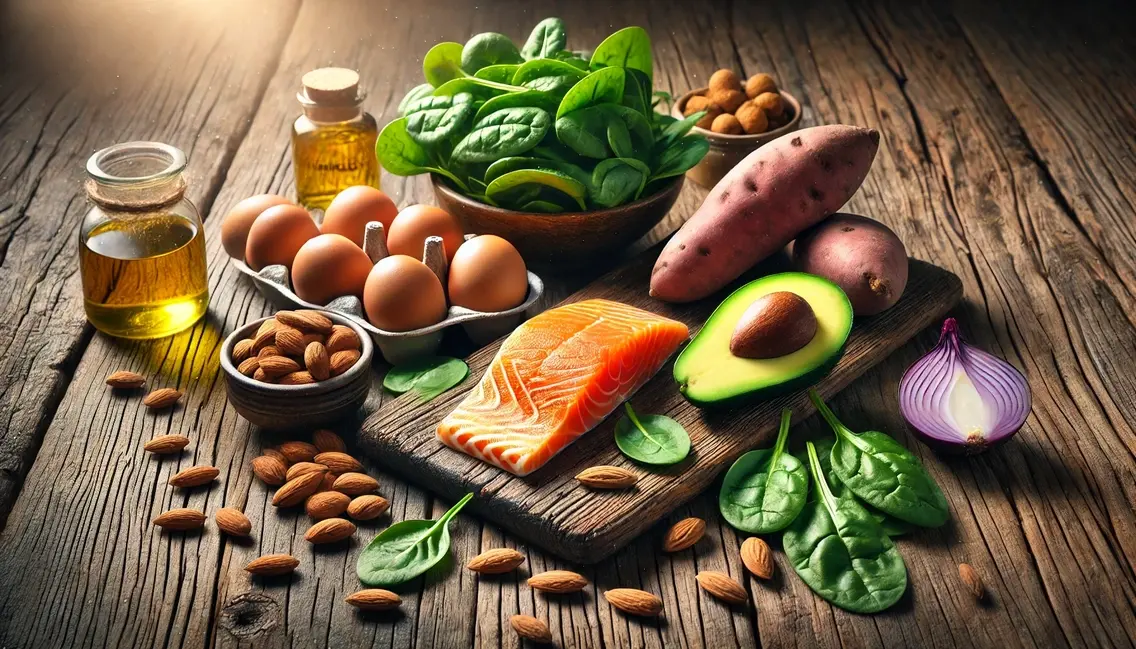The Biotin Boost: Unveiling the Hidden Secret to Radiant Hair and Skin
Have you ever wondered how top models and influencers maintain their stunning hair and flawless skin? The secret might be closer than you think. Enter Biotin (Vitamin B7)—the unsung hero in the world of beauty and wellness. Often overshadowed by more glamorous nutrients, biotin plays a crucial role in the metabolism of carbohydrates, fats, and proteins, fueling the very processes that define vitality.
But it doesn't stop there. Everything from the luscious growth of your hair to the radiant glow of your skin could be just a supplement away. Although more research is needed to fully cement its role, the potential is undeniable. Despite the hype, many are left in the dark about how biotin truly works—and whether it's a must-have for everyone.
Before you reach for that next bottle, consider this: While biotin deficiency is rare due to its abundance in foods like egg yolks, almonds, and salmon, the symptoms can be stark, leading to hair loss and skin issues. So, how do you navigate the fine line between deficiency and optimal supplementation?
In this exclusive piece, we’ll cut through the myths, reveal the scientific truths, and let you in on how biotin could be the game-changer you didn't know you needed for hair, skin, and beyond. Let’s explore why biotin has taken the beauty world by storm, and whether it truly lives up to its reputation.
Health benefits of Biotin (Vitamin B7)
Biotin, also known as Vitamin B7, is an indispensable nutrient that supports various metabolic processes. While it's often celebrated for enhancing hair, skin, and nail health, biotin's significance extends to crucial physiological functions necessary for overall well-being.
Key Health Benefits
- Supports Metabolism
Biotin functions as a coenzyme in the metabolism of carbohydrates, fats, and proteins, ensuring the efficient conversion of nutrients into energy. This activity is vital for sustaining both physical stamina and mental sharpness.
- Promotes Healthy Hair, Skin, and Nails
Scientific evidence indicates that biotin supports keratin, a protein critical for the structure of hair, skin, and nails. While further research is still needed, maintaining appropriate biotin levels might help mitigate hair loss, enhance skin condition, and fortify nails.
- Aids Neurological Function
Biotin deficiency is associated with neurological issues such as depression and fatigue, underscoring its role in brain health and mood regulation.
Integrating Biotin for Optimal Health
For those aiming to enhance their wellness, integrating biotin into your routine can be a strategic choice. To naturally address your needs and enjoy benefits like strengthened hair, improved skin, and resilient nails, consider Achieve luscious hair, radiant skin, and strong nails with Jamieson's Biotin 10,000 mcg softgels!. Next, we'll delve into dietary sources of biotin to ensure sufficient intake through a well-rounded diet.
Dietary Sources of Biotin (Vitamin B7)
Biotin, or Vitamin B7, is indispensable for metabolic processes, contributing significantly to the vitality of your hair, skin, and nails. Integrating biotin-rich foods into your diet is a natural way to bolster your intake of this essential nutrient. Yet, many people encounter challenges when trying to meet their daily biotin needs solely through diet.
Natural Sources of Biotin
- Egg Yolks
Egg yolks are among the richest dietary sources of biotin, providing an abundance of this vitamin that supports metabolic functions while maintaining the health of your skin and hair. However, for those with dietary restrictions or egg allergies, obtaining biotin through this source can be difficult.
- Nuts
Nuts, especially almonds and walnuts, are excellent providers of biotin, alongside healthy fats and proteins. Despite their benefits, the quantities required to meet daily biotin needs may not be feasible for everyone, considering the calorie and fat content.
- Salmon
Salmon contributes biotin as well as omega-3 fatty acids, aiding nutrient metabolism and overall health. Yet, frequent consumption can be an expensive dietary choice for some.
- Whole Grains
Whole grains like oats and barley offer biotin and dietary fiber. While beneficial, the biotin levels found in grains are generally modest, requiring significant portions to make a notable impact on daily intake.
- Vegetables
Vegetables such as spinach, broccoli, and sweet potatoes provide biotin along with other nutrients. The challenge lies in consuming sufficient volumes to meet the necessary daily intake of biotin naturally.
Overcoming Dietary Challenges
Even with a varied diet, reaching the recommended biotin levels can be challenging due to dietary preferences, restrictions, and lifestyle. For those facing such hurdles, supplements can provide a practical solution. An affordable and reputable option is Jamieson's Biotin 10,000 mcg softgels. These supplements can efficiently help achieve the requisite biotin levels, enhancing hair, skin, and nail health. Select a product that fits seamlessly into your daily routine and supports your overall wellness journey.
Daily Intake for Biotin (Vitamin B7)
Biotin, also known as Vitamin B7, plays a crucial role in metabolizing carbohydrates, fats, and proteins. It is often associated with maintaining healthy hair, skin, and nails; however, more research is essential to confirm these specific benefits fully. Thankfully, biotin deficiency is relatively rare, as this nutrient is widely available in many foods.
Recommended Daily Intake
- Infants 0-6 months: 5 mcg per day
- Infants 7-12 months: 6 mcg per day
- Children 1-3 years: 8 mcg per day
- Children 4-8 years: 12 mcg per day
- Children 9-13 years: 20 mcg per day
- Adolescents 14-18 years: 25 mcg per day
- Adults 19 and older: 30 mcg per day
- Pregnant women: 30 mcg per day
- Breastfeeding women: 35 mcg per day
Meeting Your Daily Biotin Needs
To maintain proper biotin levels, incorporate foods such as egg yolks, almonds, salmon, whole grains, and specific vegetables into your daily diet. Although biotin supplements can help ensure you reach the recommended intake, it's essential to consult a healthcare provider, particularly to avoid potential lab test interference from high-dose supplementation. For those specifically aiming to enhance their hair and nail health, Jamieson's Biotin 10,000 mcg softgels could be a helpful addition, aligning with both your wellness goals and daily nutrient requirements.
Consistency in meeting your biotin needs helps maintain efficient nutrient metabolism, thereby supporting your overall health and well-being. Next, we'll delve into recognizing biotin deficiency symptoms and ways to prevent them.
Deficiency of Biotin (Vitamin B7)
In today's fast-paced world, subtle health issues often remain unnoticed, yet a deficiency in essential nutrients like Biotin can silently undermine your well-being. Also known as Vitamin B7, Biotin plays a pivotal role in metabolism, hair, skin, and neurological functions. The stakes are high if this nutrient is deficient—understanding these risks can motivate proactive health measures.
Deficiency Symptoms and Consequences
- Hair Loss
Biotin is crucial for keratin production, a key structural protein of hair. A lack of Biotin may lead to hair loss and thinning, making your hair fragile and susceptible to shedding.
- Skin Rashes
Without enough Biotin, the skin's health deteriorates, leading to red, scaly rashes, often around the eyes, nose, and mouth. These symptoms arise from Biotin's role in cell growth and repair.
- Neurological Symptoms
Biotin deficiency can impair brain function, with symptoms like depression, lethargy, seizures, and cognitive impairments. This vitamin is central to energy production and neurotransmitter synthesis—both vital processes for maintaining mental health and cognitive clarity.
Maintaining adequate Biotin levels is essential not only to evade these troubling symptoms but also to support a vibrant life filled with energy and confidence.
Managing and Preventing Biotin Deficiency
Preventing a deficiency begins with a balanced diet, including Biotin-rich foods such as egg yolks, nuts, and fish. Although deficiencies are uncommon, maintaining an appropriate intake is vital for metabolic well-being, healthy hair, resilient skin, and neurological stability.
For those who need additional support, Jamieson's Biotin 10,000 mcg softgels might be a practical solution. These softgels are thoughtfully crafted to enhance your intake of Biotin, promoting luscious hair, radiant skin, and strong nails.
Curious about common misconceptions and practical concerns surrounding Biotin supplementation? Dive into the following FAQ section for science-backed insights and expert advice.
Conclusion
In the grand tapestry of wellness, Biotin emerges as a humble yet powerful thread, weaving through the intricate layers of metabolism, beauty, and brain health. As we step into a world increasingly governed by health fads and quick fixes, Biotin reminds us of the importance of getting back to basics. With just a simple adjustment or addition to your diet, you could unlock a new level of vitality, giving your hair, skin, and overall wellbeing the radical boost they might need.
But the journey doesn't end here. Reflect on what you've learned and consider how Biotin fits into your personal health narrative. Could this be the missing link in your wellness routine? As you ponder this, challenge yourself to make a tangible change. Whether it’s incorporating more Biotin-rich foods into your meals or exploring supplements like Jamieson's Biotin 10,000 mcg softgels, remember that every small decision contributes significantly to your health trajectory.
And let's not keep this revelation to ourselves. Share your insights, discuss with friends, or even spark a conversation with your gym buddy about Biotin's role in their routine. After all, the path to health is a journey better traveled together. What will your next step be towards harnessing the full potential of Biotin in your life? Your health journey is uniquely yours—and the next chapter starts now.

